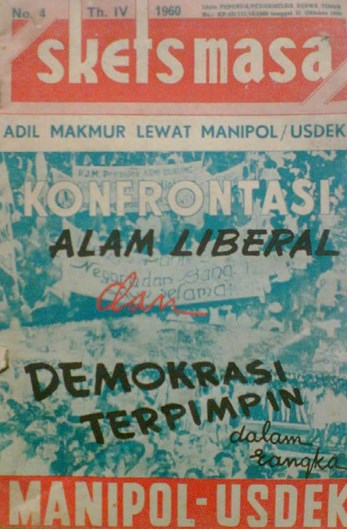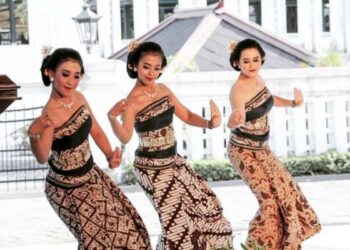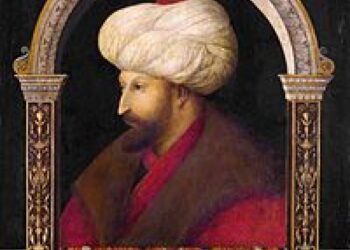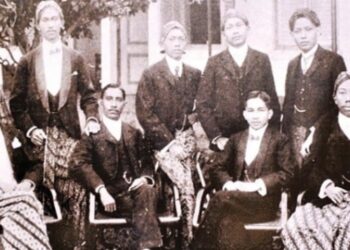In the past three years, Korea has become increasingly recognized worldwide. Not because of the toughness of the industry or its economic strength, the country of Ginseng is getting more and more successful, precisely because of the expansion of its pop culture while getting more and more aggressive. K-Pop culture, be it music, movies, fashion, or its signature food, has emerged as a new weapon for Korea to shine among other nations in the world.
Seeing the aggressiveness of K-Pop culture that is aggressing the whole world, it is not wrong to think that the culture from this East Asian country is starting to threaten Indonesia’s national culture. The fear that national culture is becoming threatened is not new. In the mid-1950s, Bung Karno had echoed his awareness of cultural sovereignty.
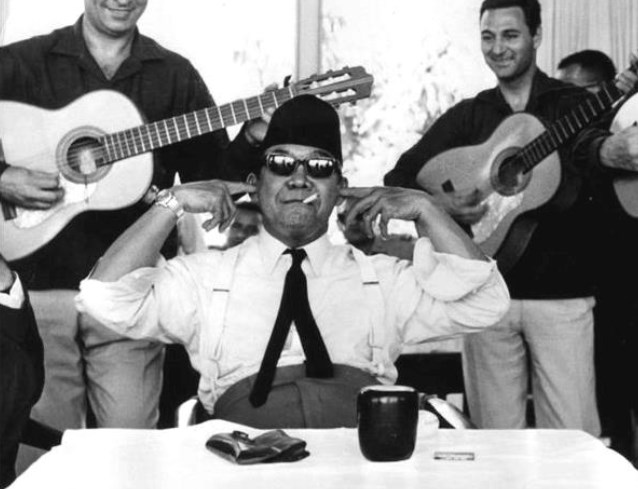
Culture and Politics
As a President who was known very nationalist, Bung Karno had taken a brave step, using culture as a means of strengthening the spirit of nationality. Not only that, during his leadership, there was unique intercourse between culture and politics. It can be seen more further from the lyrics of popular songs at that time, which in addition to implying political messages, also had a rhythm that was unique to the military marching songs. Whereas in the early 1950s, Indonesia began to recognize the invasion of pop, and Hawaiian style music was more inclined towards a hedonistic culture. At that time, pop music festivals were popular with young people.
One of the pop music festivals that were quite popular at that time was the radio star election held by RRI. In the mid-1960s, Beatles rock and roll music began to hypnotize Indonesian youth. The songs from the band of Liverpool, England became even crazier after the appearance of a band from local with a strong Beatles band nuance, Koes Ploes. Although it is a local seasonal group, they consistently play British rock music while immediately receives a massive response. Not only the songs of sing, but their make-up was also a trendsetter and a standard for young people at that time to be called trendy..
Read also:
Indonesia and America – When Ir.Soekarno made the United States Government Headache
Soekarno and Several Assassination Attempts He Has Ever Experienced
But apparently, some parties feel embarrassed by it all. Political organizations linked to the PKI and the ultranationalist press criticized the Koes Plus children’s musical style. Even Bung Karno himself called the music name is coward music. In 1963, on various occasions, Bung Karno openly criticized the music of coward which was deemed un-nationalist, taught laziness, and weakened the mentality of the younger generation to sink into trivial themes such as love and dating. In fact, according to the father of Pancasila, the mentality of the young Indonesian generation must always be maintained to become strong and have the character to face the threat of neo-colonialism.
Realizing that the symptom of coward music was starting to be favored and increasingly dangerous, on 22 November 1964, Bung Karno formed a team to design national music. The members of this team are Oe Tjoe Tat and Adam Malik, to draft the design of music so that the Indonesian people would be back to their national personality and culture.
As a result, after that many bans and warnings were given to artists who were considered to have contracted western cultural viruses.. Several artists who have experienced it include Ermi Johan and Lilis Suryani who were asked to change the way they dress and their songs to make it more Indonesian. The second name even became known as the singer of songs with political themes, such as the song titled Manipol-USDEK. Not only that, but the government also urges barbers to refuse customers who ask for long hairstyles or bangs in the style of The Beatles.
However, some later disobeyed this regulation, one of which was Koes Ploes. The most famous band of its time still insisted on singing the Beatles ‘songs or their songs, which of course also had a very strong feel of Beatles’ or Elvis Presley’s rock n roll. Even though the AGO has often given warnings, the band led by Tony Koeswoyo and his siblings still often plays songs that do not match the rhythm of nationalism. In some events, they even openly performed Beatles songs. On March 15, 1965, Bintang Timur Daily raised the topic that western culture must be immediately broken. Simultaneously since then, the press, especially those affiliated with certain political parties, immediately sank deep into raising issues regarding the controversy over rock and roll culture. Meanwhile, the daily Warta Bhakti published an article containing an urge to conduct an in-depth investigation of the phenomenon of coward music. In 1965, RRI stopped playing The Beatles’ songs.
Read also:
Indonesia and America – When Ir.Soekarno made the United States Government Headache
Soekarno and Several Assassination Attempts He Has Ever Experienced
The people also seem to be involved in the spirit to return to the national personality. Many youth and student organizations have eventually become the pioneers in performing uplifting songs. Two of the most famous songs of that era, Manipol-USDEK and Internazionale, really became the standard of music that could be sung. But on 24 June 1965, there was an uproar. At one house, Koes Ploes appeared by singing his forbidden songs. As a result, at that moment, the youth in the neighborhood broke up their appearance. Finally, on June 29, 1965, Koes Ploes was arrested for questioning. What Bung Karno did, from the perspective of today, sounds exaggerated. But not without reason the proclaimer did that. As a country that is still very young, its young generation must always be vigilant in maintaining its independence, including in the cultural field.
The younger generation in Bung Karno’s era was known as a pioneer generation who had successfully guarded the sovereignty of the Republic and made Indonesia’s name shine. Unfortunately, after Bung Karno was over-thrown, politics to protect national culture and personality became directionless. The most obvious evidence is that this country only “roared“, and shouting when Wayang and Reog were claimed by neighboring countries, so sad if we look into their nationalism. Youth are the heirs of civilization. It takes awareness to love the country, its people, and its culture. If the younger generation is only preoccupied with the words of love and culture that makes the soul sluggish, don’t blame the Indonesian sky if suddenly you hear the blaring mental taunts of tempeh, laughing at those who are engrossed in fun and hedonistic joy. FREEDOM AND GLORY FOR INDONESIA!!!


